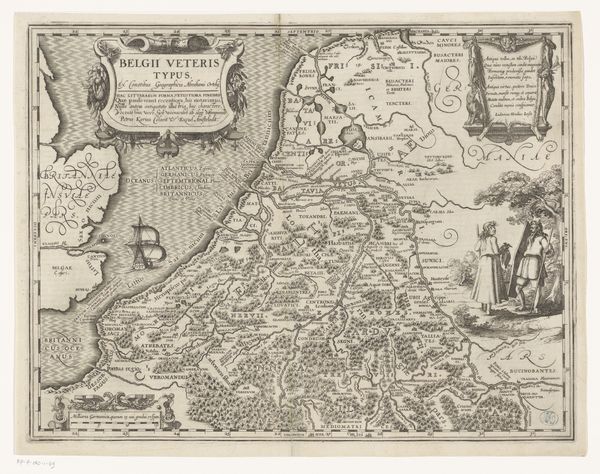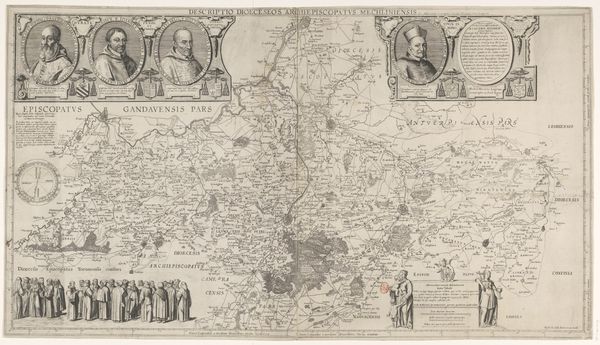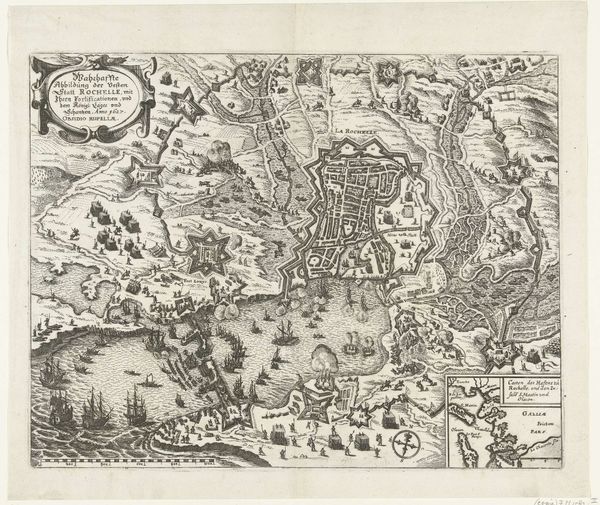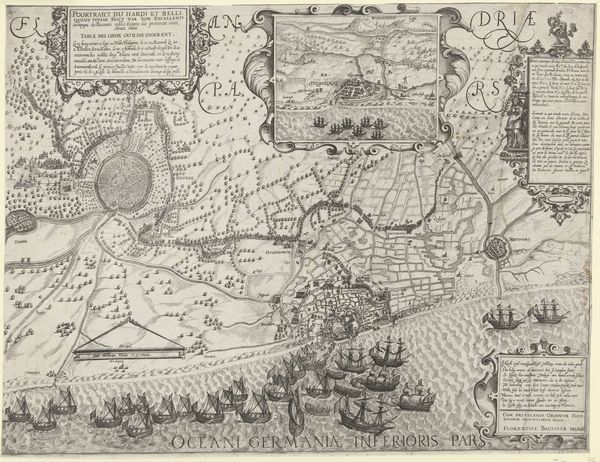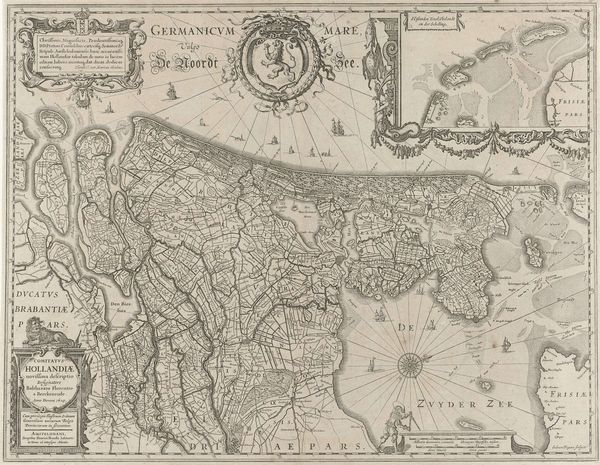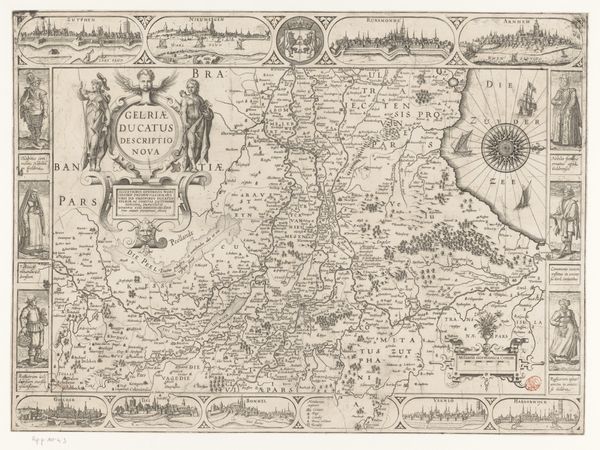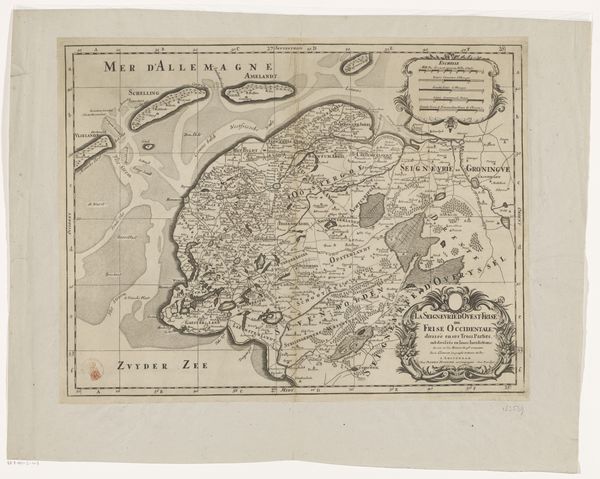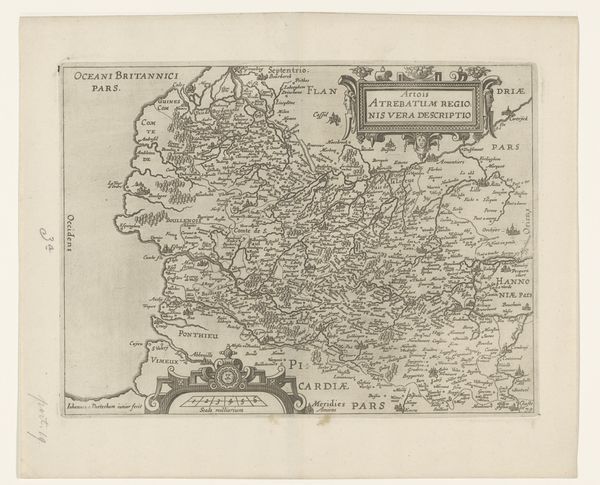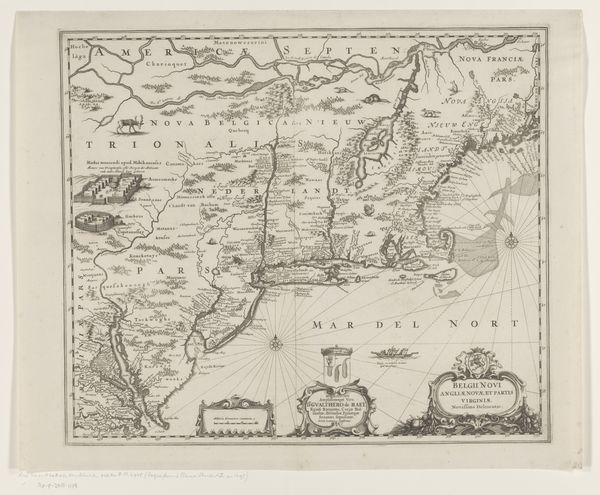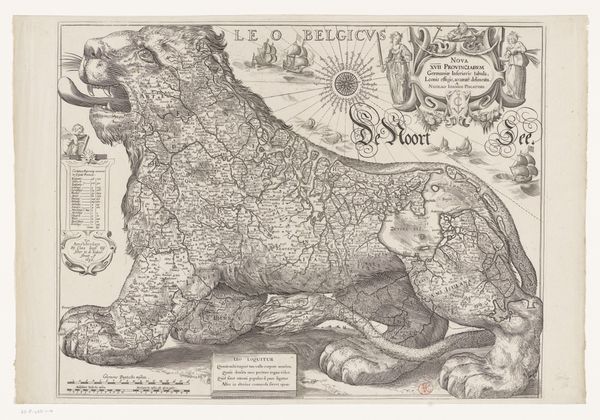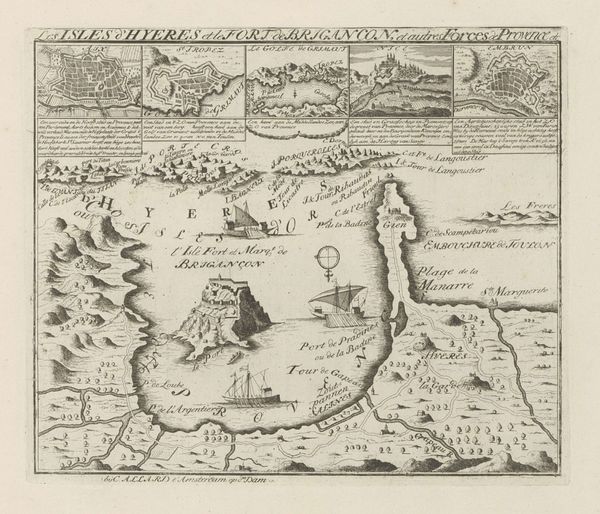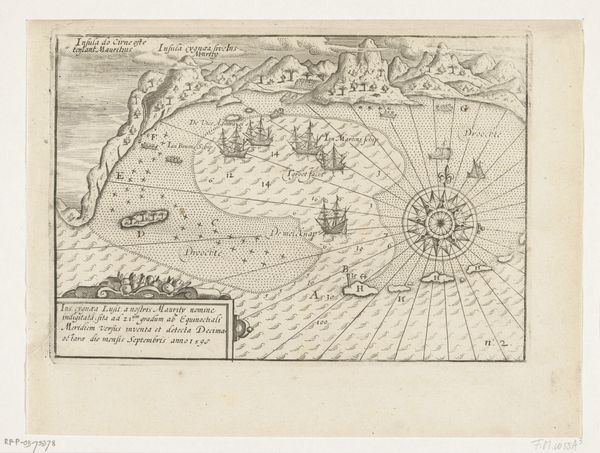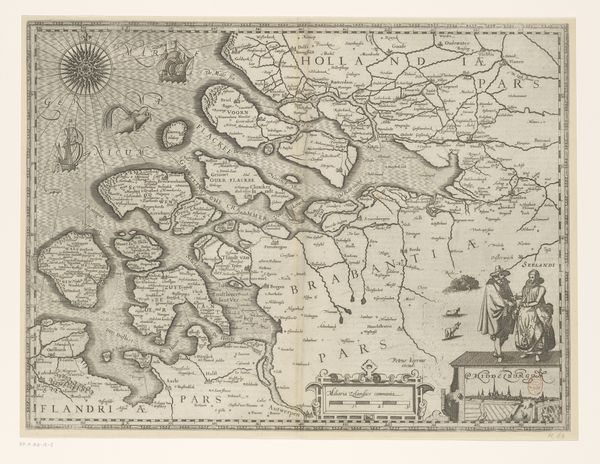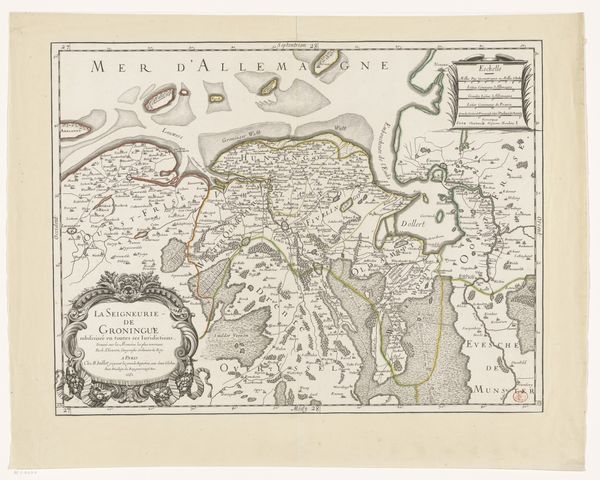
drawing, ink, pen
#
drawing
#
baroque
#
ink
#
geometric
#
pen
#
cityscape
#
history-painting
Dimensions: height 255 mm, width 355 mm
Copyright: Rijks Museum: Open Domain
Editor: This pen and ink drawing, "Beleg van Bergen op Zoom, 1622," depicts a historical siege. The detailed rendering makes me think of the labor involved in its creation. I wonder about the relationship between such detailed craftsmanship and its social context at the time. What stands out to you in this piece? Curator: Well, I’m immediately drawn to the sheer amount of labor involved in producing this detailed map. Consider the artist, probably working on commission, meticulously rendering each fortification, each stretch of polder. This wasn’t just about geographic accuracy; it was about visualizing power, control, and the sheer material investment in warfare. Editor: So, it's not just a visual representation, but also a document reflecting the economics and resources poured into the conflict. Was it unusual to create something like this? Curator: Maps like this were strategic assets, valued for their intelligence value but also for their propagandistic function. How better to showcase your territorial ambitions and military strength than through a beautifully rendered image circulating among those in power? What do you notice about the materials used? Pen and ink are readily available, transportable, but how does that materiality influence our interpretation? Editor: Thinking about the choice of pen and ink... it's relatively inexpensive compared to painting, perhaps reflecting a practical approach to documenting ongoing events. It allows for precise details, necessary for military intelligence, which underscores a utilitarian purpose despite its aesthetic qualities. So the material directly reflects the need. Curator: Exactly! It shifts our understanding from high art to a form of skilled craft embedded in a very specific socio-political context. This prompts a question: are the geometric features intended as an exploration of pure design, or is this a tactical map using design to exert soft power? Editor: That’s a totally different angle than I originally considered! Thinking about it as a material object with a practical use rather than just an artistic representation of the siege provides new context to the work. Curator: Precisely! Materiality always carries a history, a set of social relations within it. Understanding those elements gives us a more complete picture.
Comments
No comments
Be the first to comment and join the conversation on the ultimate creative platform.
